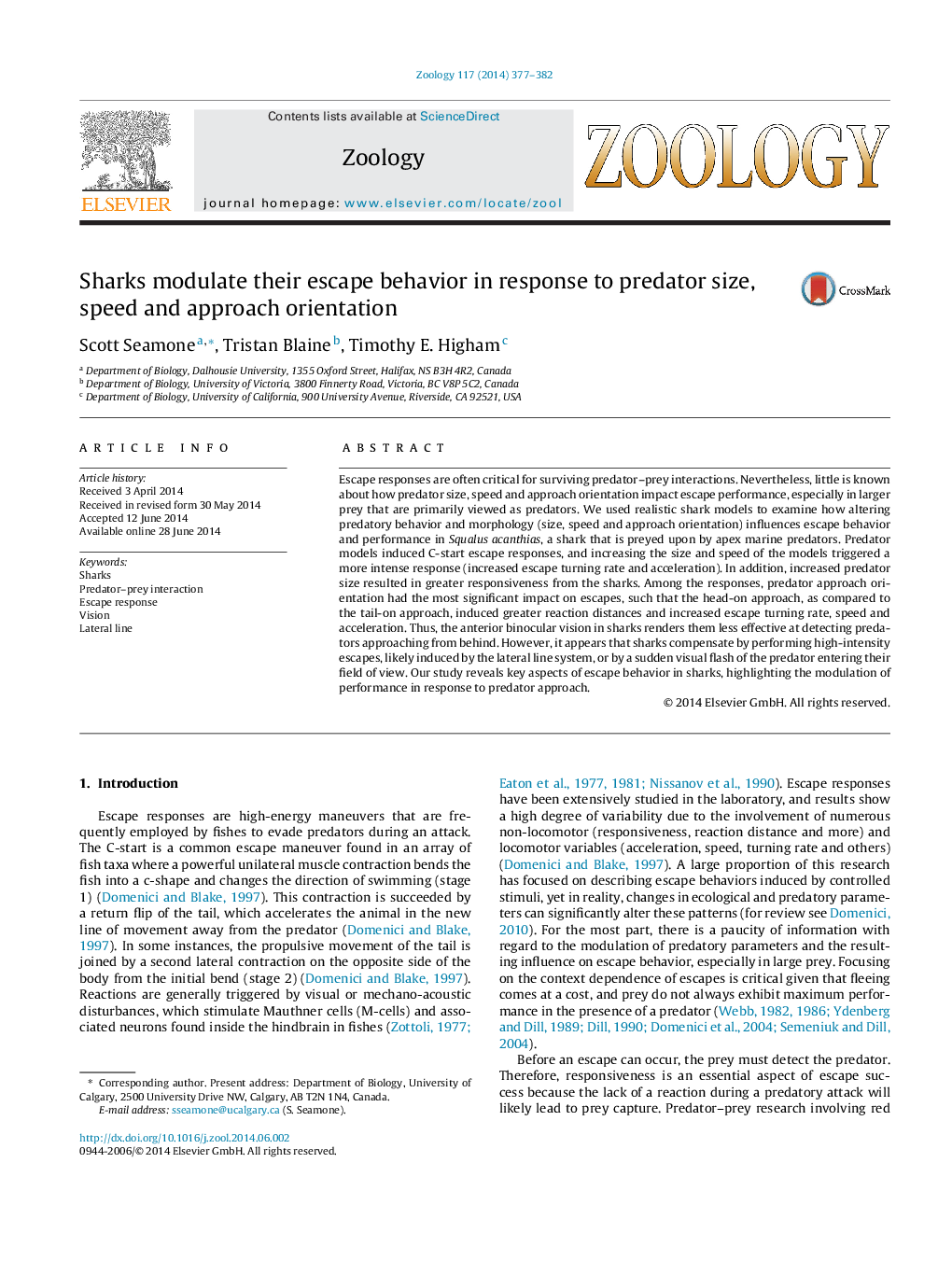| کد مقاله | کد نشریه | سال انتشار | مقاله انگلیسی | نسخه تمام متن |
|---|---|---|---|---|
| 2791018 | 1154831 | 2014 | 6 صفحه PDF | دانلود رایگان |
Escape responses are often critical for surviving predator–prey interactions. Nevertheless, little is known about how predator size, speed and approach orientation impact escape performance, especially in larger prey that are primarily viewed as predators. We used realistic shark models to examine how altering predatory behavior and morphology (size, speed and approach orientation) influences escape behavior and performance in Squalus acanthias, a shark that is preyed upon by apex marine predators. Predator models induced C-start escape responses, and increasing the size and speed of the models triggered a more intense response (increased escape turning rate and acceleration). In addition, increased predator size resulted in greater responsiveness from the sharks. Among the responses, predator approach orientation had the most significant impact on escapes, such that the head-on approach, as compared to the tail-on approach, induced greater reaction distances and increased escape turning rate, speed and acceleration. Thus, the anterior binocular vision in sharks renders them less effective at detecting predators approaching from behind. However, it appears that sharks compensate by performing high-intensity escapes, likely induced by the lateral line system, or by a sudden visual flash of the predator entering their field of view. Our study reveals key aspects of escape behavior in sharks, highlighting the modulation of performance in response to predator approach.
Journal: Zoology - Volume 117, Issue 6, December 2014, Pages 377–382
